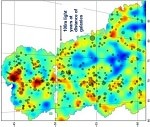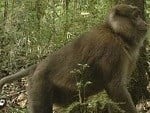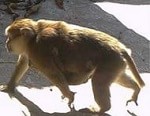Zombie worm Osedax lived on prehistoric carcasses of reptiles
The Osedax worm, known informally as the Zombie Worm, is a species of bone-eating worm that scientists mistakenly believed evolved in conjunction with whales. It...
Dark matter maps will help explain their role in the Universe
Scientists have released the first in a series of dark matter maps of the Universe that should help us understand their role in the...
New Tibetan macaque species has unique penis shape
A new macaque species has been discovered in the Modog state of southeastern Tibet, which has a round-shaped penis, unlike its other macaque cousins...
New monkey species with round and not arrow shaped penis found
A new macaque monkey species with a round rather than arrow-shaped penis has been discovered by Chinese scientists in the state of Modog, in...
Mars has giant frozen water glaciers under its surface of dust
Below the thick layer of dust on Mars there are glaciers of frozen water, enough to cover the whole planet in over one meter...
Hydrogen fuel from corn husks, a low emission breakthrough
A cheap way of producing hydrogen fuel from abundantly-available corn stover – the stalks, cobs, and husks - has been discovered by scientists at...
Three new Dwarf Dragon species discovered in the Andes of Peru and Ecuador
Three new species of Dwarf Dragons – dragonesque woodlizards – have been discovered in the Andes of Ecuador and Peru. Dwarf Dragons, also known as...
Farage set to lose his own South Thanet seat, say Tory newspapers
Two Tory newspapers, the Telegraph and Mail, say Nigel Farage, head of the anti-EU party UKIP, is set to lose his South Thanet seat...
Large Hadron Collider, now a much mightier beast, restarted
The Large Hadron Collider, which is much more powerful now, restarted on Sunday. With its much mightier bang compared to two years ago when...
Source of galaxy clusters discovered by cosmologists
Cosmologists believe they have discovered the source of the vast cluster of galaxies we see today, after combining observational data of the distant Universe...










